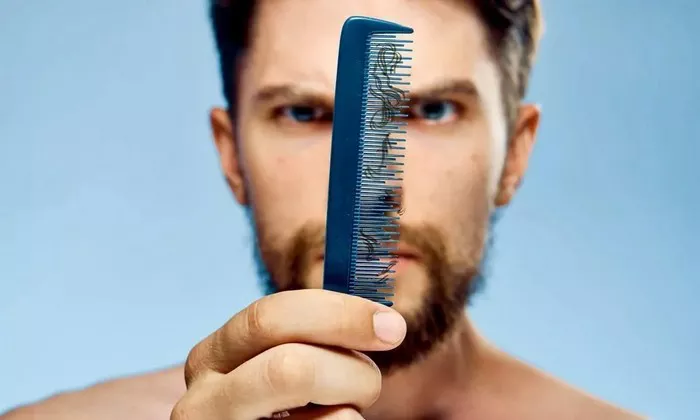Hair fall is a common concern among residents of the Gulf countries. The hot and arid climate, combined with other environmental and lifestyle factors, significantly contribute to this issue. This article delves into the causes of hair fall in the Gulf region and offers practical solutions to mitigate this problem.
Understanding Hair Fall: Causes and Contributors
Before exploring solutions, it is essential to understand the primary causes of hair fall, particularly in the Gulf countries.
Climatic Conditions
The Gulf region is known for its extreme temperatures, with summer temperatures often exceeding 45°C (113°F). Such intense heat can lead to dehydration, which adversely affects hair health. Dehydration weakens hair follicles, making hair more prone to breakage.
Water Quality
The quality of water in many Gulf countries is another significant factor. The water is often desalinated and contains a high level of minerals and chlorine. This can cause dryness of the scalp and hair, leading to increased hair fall.
Diet and Nutrition
A diet lacking in essential nutrients can exacerbate hair fall. In the Gulf, the fast-paced lifestyle often leads to the consumption of fast food, which lacks the vitamins and minerals necessary for healthy hair growth.
Stress
The high-pressure work environment prevalent in the Gulf countries can lead to elevated stress levels. Stress is a well-known contributor to hair fall, affecting the natural growth cycle of hair.
Use of Hair Products
Frequent use of hair styling products and heat treatments can weaken hair and lead to increased hair fall. In the Gulf, the cultural importance of grooming often leads to the overuse of such products.
Strategies to Reduce Hair Fall
Maintain a Healthy Diet
A balanced diet is crucial for maintaining healthy hair. Ensure your diet includes:
- Proteins: Hair is primarily made of keratin, a protein. Include protein-rich foods such as eggs, fish, and legumes.
- Vitamins and Minerals: Vitamins A, C, D, E, and minerals like zinc and iron are essential for hair health. Incorporate a variety of fruits, vegetables, nuts, and seeds into your diet.
- Omega-3 Fatty Acids: Found in fish, flaxseeds, and walnuts, these are vital for maintaining hair thickness and elasticity.
Stay Hydrated
Drinking enough water is essential for overall health, including hair health. Aim to drink at least 8-10 glasses of water daily to keep your scalp and hair hydrated.
Use the Right Hair Products
Choose hair care products that are free from harsh chemicals. Look for shampoos and conditioners that contain natural ingredients and are sulfate-free. Products containing biotin, keratin, and other strengthening agents can help reduce hair fall.
Protect Your Hair from Sun Damage
The intense sun in the Gulf can damage your hair. Wear a hat or scarf to protect your hair when you are outdoors. Use hair products with UV protection to minimize damage from the sun’s rays.
See Also: How to Stop Hair Loss from Perms: Things You Need To Know
Avoid Overuse of Heat Styling Tools
Limit the use of hair dryers, straighteners, and curling irons. When you do use them, apply a heat protectant spray to minimize damage. Allow your hair to air-dry whenever possible.
Regular Scalp Massages
Massaging your scalp can improve blood circulation, which promotes hair growth. Use natural oils like coconut oil, olive oil, or argan oil for the massage. These oils also provide nourishment to the hair follicles.
Address Water Quality Issues
Consider installing a water filter to reduce the mineral content and chlorine in your water. This can help prevent dryness and damage to your hair.
Manage Stress
Engage in stress-relieving activities such as yoga, meditation, and regular exercise. Maintaining a healthy work-life balance is crucial for reducing stress-related hair fall.
Seek Professional Help
If your hair fall persists despite trying these measures, it may be beneficial to consult a dermatologist or trichologist. They can offer personalized treatment plans and recommend appropriate medical interventions.
Natural Remedies to Combat Hair Fall
In addition to the strategies mentioned above, several natural remedies can help reduce hair fall.
Aloe Vera
Aloe vera has soothing properties that can reduce scalp inflammation and irritation. Apply fresh aloe vera gel directly to your scalp, leave it for an hour, and then rinse off with lukewarm water.
Onion Juice
Onion juice is rich in sulfur, which promotes hair growth and reduces hair fall. Extract the juice of an onion, apply it to your scalp, leave it for 30 minutes, and then wash off with a mild shampoo.
Fenugreek Seeds
Fenugreek seeds are known for their hair-strengthening properties. Soak the seeds overnight, grind them into a paste, and apply it to your scalp. Leave it for 30 minutes before washing off with water.
Green Tea
Green tea is rich in antioxidants that promote hair growth and reduce hair fall. Brew two green tea bags in hot water, let it cool, and then rinse your hair with it.
Conclusion
Reducing hair fall in Gulf countries requires a multifaceted approach that addresses the unique environmental and lifestyle challenges of the region. By maintaining a healthy diet, staying hydrated, using appropriate hair care products, protecting your hair from sun damage, managing stress, and incorporating natural remedies, you can significantly reduce hair fall. If these measures do not yield results, seeking professional medical advice is recommended. With the right care and attention, you can maintain healthy, strong, and vibrant hair despite the harsh climatic conditions.


